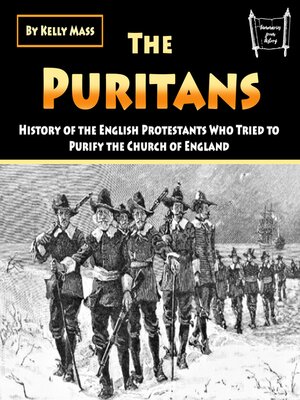The Puritans
audiobook (Unabridged) ∣ History of the English Protestants Who Tried to Purify the Church of England
By Kelly Mass

Sign up to save your library
With an OverDrive account, you can save your favorite libraries for at-a-glance information about availability. Find out more about OverDrive accounts.
Find this title in Libby, the library reading app by OverDrive.



Search for a digital library with this title
Title found at these libraries:
| Library Name | Distance |
|---|---|
| Loading... |
The Puritans were English Protestants who emerged in the 16th and 17th centuries, deeply dissatisfied with the scope of the English Reformation. They believed that the Church of England had not fully distanced itself from Roman Catholic customs and needed further reform to become a more authentic expression of Protestant beliefs. In their view, many of the Catholic practices, such as hierarchical structures, rituals, and liturgies, had been retained within the Church of England, making it insufficiently Protestant. Their aim was to purify the Church, which led them to form various groups advocating for deeper piety in both personal worship and theological belief.
A central element of Puritanism was its adherence to Calvinist theology, which was rooted in Reformed Christian principles. This alignment with Calvinism marked them as part of a broader movement that sought to reject Roman Catholic influences, but also led to tension with other Protestant groups, particularly those within the Church of England who were not as radical in their reforms. Many Puritans advocated for a more decentralized church structure. Some even pushed for independent congregations, which would exist outside the framework of the established Church of England and avoid its perceived corruptions.
The Puritans' influence reached a peak during the Protectorate, when the political and religious landscape of England underwent significant shifts. By the late 1630s, Puritans had developed an alliance with emerging business interests, legislative resistance to the monarchy, and Scottish Presbyterians, with whom they shared theological and political concerns. These alliances helped the Puritans gain substantial power during the First English Civil War (1642–1646). Their victory in the war and the subsequent rise of Puritan influence under Oliver Cromwell allowed them to have a profound impact on English governance and society.







